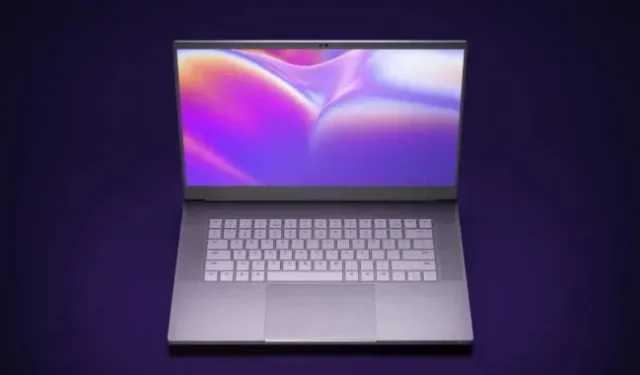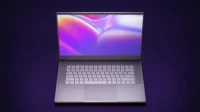Razer is primarily known for its gaming PCs and peripherals, but the company has been known to dive into the performance space from time to time. The Razer x Lambda Tensorbook, announced on Tuesday, shows Razer moving even further out of its comfort zone. Created in collaboration with Lambda, the Linux-based clamshell is focused on deep learning development.
Lambda, in existence since 2012, is a deep learning infrastructure provider used by the US Department of Defense and “97 percent of the top US research universities,”according to a company statement. Lambda’s offerings include GPU clusters, servers, workstations, and cloud instances that train neural networks for a variety of use cases including self-driving cars, cancer detection, and drug discovery.
Dubbed the “laptop for deep learning,” the Tensorbook is powered by an Nvidia RTX 3080 Max-Q (16GB) and is aimed at machine learning engineers, especially those who don’t have a laptop with a discrete GPU and thus have to share remote resources. machines, which negatively affects development.
Tensorbook makes it easy to install PyTorch, TensorFlow, Caffee, and Caffee 2 deep learning frameworks, as well as GPU-centric CUDA and cuDNN applications, and development tools with a “one-line Lambda installation and managed update path.”
“When you connect to a remote server via SSH, you have no local data or code, and it’s even difficult for you to demonstrate your model to colleagues,” said Stephen Balaban, co-founder and CEO of Lambda. noting that the laptop comes with PyTorch and TensorFlow for quickly training and demonstrating models from a local GUI without SSH.
Lambda doesn’t make laptops, so it hired Razer to build the machine. At the time of this writing, Razer does not sell the Tensorbook on its website. However, the machine is similar to Razer laptops, from its light and thin design (4.43 pounds / 0.66 inches thick) to its colorful keyboard, side speakers, and snappy screen. The 15.6-inch display has a refresh rate of 165Hz at a resolution of 2560×1440.
The Tensorbook comes with the latest generation Intel i7-11800H processor with eight cores and a base clock speed of 2.3GHz that can be boosted up to 4.6GHz. The machine also uses 64GB of DDR4-3200 RAM and 2TB of PCIe 4.0 SSD storage.
While more powerful laptops are available, the Tensorbook stands out for its software suite and Ubuntu Linux 20.04 LTS. Lambda also revealed that Tensorbook supports Windows dual boot.
Port selection is strong; The laptop has two Thunderbolt 4 ports, three USB-A (3.2 Gen 2), HDMI 2.1 ports, a headphone jack, and an SD card reader.
Tensorbook is currently $3,500.


